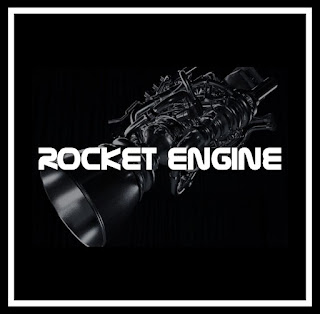LIFT OFF: Complexities of a Rocket Launch

LIFT OFF: Complexities of a Rocket Launch
Why it is difficult to launch a rocket?
Introduction:
A warm welcome to the first blog of the LIFT OFF series. This is the series that will definitely rub out the misconceptions about rocket science being tough. Okay, so the question is, what could possibly go wrong while launching a long pencil into space? Answer: There are a couple of thousand things that could possibly go wrong. The propellant tanks can burst, the fuel may leak from the pipes, the engine could catch fire, the electronics might fail etc. The list won't stop. There are a dozen of parameters and a battery of checks before giving the final "GO!" Let's segregate the topics.
1. Major checks and "go/no go poll" before the rocket launch or the "Launch Status Check":
Trust me, these are just weather checks. There are a dozen hundred more of them. Every minuscule thing's matters. When everything goes right. The actual launch count down begins.
1. Major checks and "go/no go poll" before the rocket launch or the "Launch Status Check":
If you have ever seen a rocket launch, you must have definitely heard the go/no go pools. Where a person will read a list of checkpoints and the respective department operators will post a reply. One "no go" is enough to postpone a rocket launch. Why? You don't want to see millions of dollars set on fire right?😂 Every department has a live feed on their screens directly arriving from the sensors on the rocket. These sensors are expensive and damn accurate in their results. Again, you cannot see your dollars lit up bright orange due to some cheap inaccurate readings.
Read More on Launch Status Check: Wikipedia
2. "Conditions" required for a rocket launch:
Here's an image that I traded with nasa.gov. It describes all the necessary weather conditions required for a successful launch.
Here's an image that I traded with nasa.gov. It describes all the necessary weather conditions required for a successful launch.
Trust me, these are just weather checks. There are a dozen hundred more of them. Every minuscule thing's matters. When everything goes right. The actual launch count down begins.
T - 9 minutes:
This is the period when a rocket scientists heart starts beating twice the original speed. The Ground Launch Sequencer (GLS) will automatically control the countdown. This program will continuously do a health checkup of every section of the rocket with the help of expensive sensors.
T - 7 min 30 seconds:
The orbiter access arm starts to retract. It extends exactly to the nosecone of the rocket through which,, the astronauts/cosmonauts get into the rocket. This arm slowly and steadily retracts itself away from the vehicle.
T - 5 minutes:
The weather conditions are checked again. Any possible chances of failure will lead to a postponement of the launch. The commander of the launch gives a "GO!" to start the orbiter's auxiliary power units (APU), which is responsible to create and produce pressure for the rocket hydraulic systems. These systems are mainly to gimble the rocket engine for the gravity turn.
T - 2 minutes:
At this point, the commander will advise his crewmates to close the visors on their helmet of the spacesuit. The GLS is still automatically handling the launch countdown.
T - 30 seconds:
This time is probably the fingers crossed moment. The rocket scientists heart has probably reached 200 bpm (beats per minute) by now. If no technical issues by now, there will be a "GO!" to the "Auto Sequence Start" which means the GLS will give the handover to the onboard rocket computers. In new rockets, this process takes place at around T - 2 minutes. (Just for safety)
T - 15 seconds:
To suppress the deafening sound of the sounding rocket engines, water is poured on the rocket engines. This saves our ears, as well as saves the payload from potential damage.
T - 5 seconds:
Well, now it's DO or DIE. SUCCESS or FAILURE. The engines roar and there's a huge-huge cloud that comes out of those vents.
T - 0 seconds:
The thrust produced by the engines exceeds the weight of the vehicle and then BINGO!
Lift Off!
DISCLAIMER:
The cloudy stuff you see emitting out of a rocket launch is the STEAM generated when hot gasses boils off the water poured during the process of noise suppression.
Damn!! That's a lot to digest. Sure shot constipation. But this series was always supposed to be this technical! I tried breaking stuff into simpler pieces. Make sure you utilize the comments section to ask doubts. With that, I take a leave! Hey, it's Hardik, signing off.
Humourous one, you would love it!! : Space Suits
The best one: Rocket Engine: Part 1
Make sure you follow my Instagram page for regular updates: Direct Link






Such a great content... keep up the work Hardik
ReplyDelete